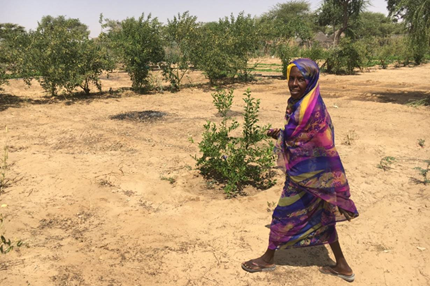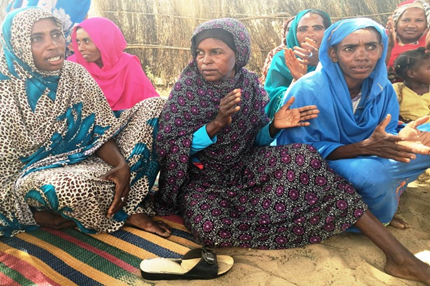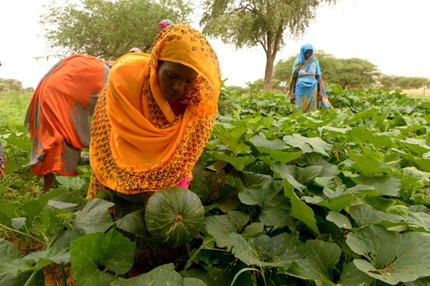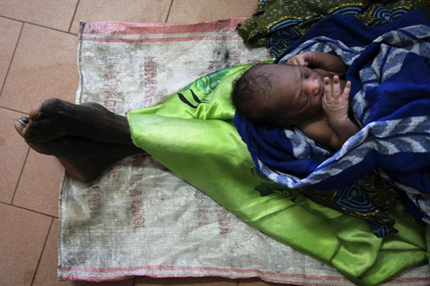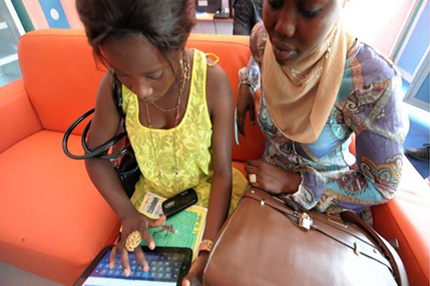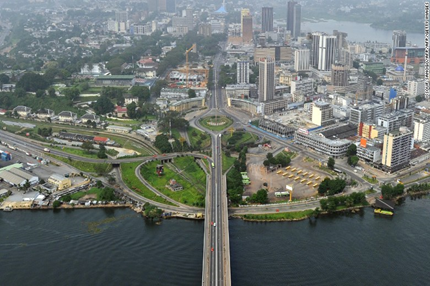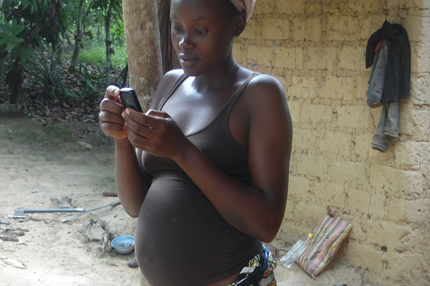The women of Sudan's North
Kordofan state used to be famed for their war songs urging men to
defend their meagre desert assets of cattle, bush and watering
holes.
Now, in villages like Albaida,
surrounded by deep orange sand dunes, women chant odes to protect
their environment from a new enemy: climate change.
"Oh lemon tree, I plant you
because you are good for climbing, so that I can get enough phone
signal to send my love messages," sing a group of a dozen women
sitting under a lalop tree, tapping upturned buckets as
percussion.
Over the past year, people in
this village of 300 families have planted around 9,000 trees to try
and stop the advance of the "gezan" (sand dunes) aided by
disappearing tree barriers and desert storms blasting through the
grass-thatched houses.
"Now it's getting better - we
don't wake up and find sand covering everything," said farmer
Maryam Mohammed Quoreshi.
Quoreshi remembers when people
did not have to walk far to find clusters of trees to provide
fodder for animals.
Farmers were wealthy because
"there was enough rain for every living thing", and they tapped
plentiful, thorny acacia trees for gum arabic.
But a series of intense
droughts, which started in 1984 and lasted several years, killed
most of the desert-hardy acacias and turned farms to
dust.
This caused men to migrate north
to search the desert for gold, harvest dates, or scour the capital
Khartoum for odd jobs, as families waited for them to send money
home.
"We never had any plans - you'd
just wake up in the morning and deal with that day," Quoreshi said.
"You'd live in a constant state of anxiety."
Villagers said the area never
recovered from those years of ruin, and that temperatures have been
rising and rainfall fluctuating since, causing further
desertification.
North Kordofan state, in central
Sudan, suffers from extreme fluctuations in rainfall, which varies
from 150 mm (5.91 inches) to 450 mm per year, leaving incomes
vulnerable to frequent drought cycles, according to the United
Nations Development Programme (UNDP).
Eltigani Khalifa Mukhtar,
director of administration at North Kordofan's Ministry of
Agriculture, said rain patterns started changing around 15 years
ago, causing widespread crop failures every three years that led to
mass hunger.
"Some people migrated, some
people died - especially children," he said.
In some of the villages he has
visited in recent months, "there are one or two men left - that
means in some villages, more than 90 percent migrate", he
explained, adding that an estimated 2 km (1.24 miles) of arable
land is lost to desert each year.
PLANTING DRIVE
To stop desertification, the
government has embarked on reforestation projects, planting 2
million trees - mainly acacia - over the past two years, and aiming
for 30 million within five years.
Mukhtar hopes this will
rehabilitate the gum arabic belt and "create a barrier to shifting
sands covering all our state".
Since November 2014, UNDP has
launched pilot climate change adaptation projects in seven villages
across North Kordofan to further the national reforestation
programme and build community resilience more widely.
In Albaida, UNDP has established
tree nurseries and planting programmes, and installed solar water
pumps to feed vegetable gardens run by women.
The two-year project has
educated people about the role of trees in protecting fertile top
soils from heat, erosion and sand.
"We were told we shouldn't cut
trees to make the environment better, and we have been noticing
that the weather has improved and the sand is not moving like
before," said Quoreshi.
A cooperative of 60 women,
divided into groups of ten, now grows potatoes, tomatoes, pumpkins,
carrots, okra and greens year round, most of which they sell to
trucks from the nearby town of Bara and state capital El
Obeid.
Sudan is applying to the Green
Climate Fund for financial support to scale up similar climate
change adaptation projects across all nine states.
PUNISHMENT
In addition to the songs penned
by women to celebrate each type of tree, the community has come up
with strict rules and punishments to protect them.
"It is forbidden to cut trees,"
said villager Omer Nourin, clasping his wrists together to show
what happens if you can't pay the fine handed down by a committee
tree-fellers are brought before. "You have to go Bara
prison."
The community has allowed some
villagers to languish in jail for weeks, while their relatives try
to raise the money to pay the fine - anywhere between 500 to 1,000
Sudanese pounds (about $77-$155) - to get them out.
Government official Mukhtar and
other climate change experts take a similar line towards developed
countries, whose higher greenhouse gas emissions are contributing
to the warming of desert areas where summers can now surpass 50
degrees Celsius.
"The rich countries made the
problem, so they have to help us solve this," he said. "Whoever
pollutes the environment has to pay."
Thomson Reuters
Foundation
